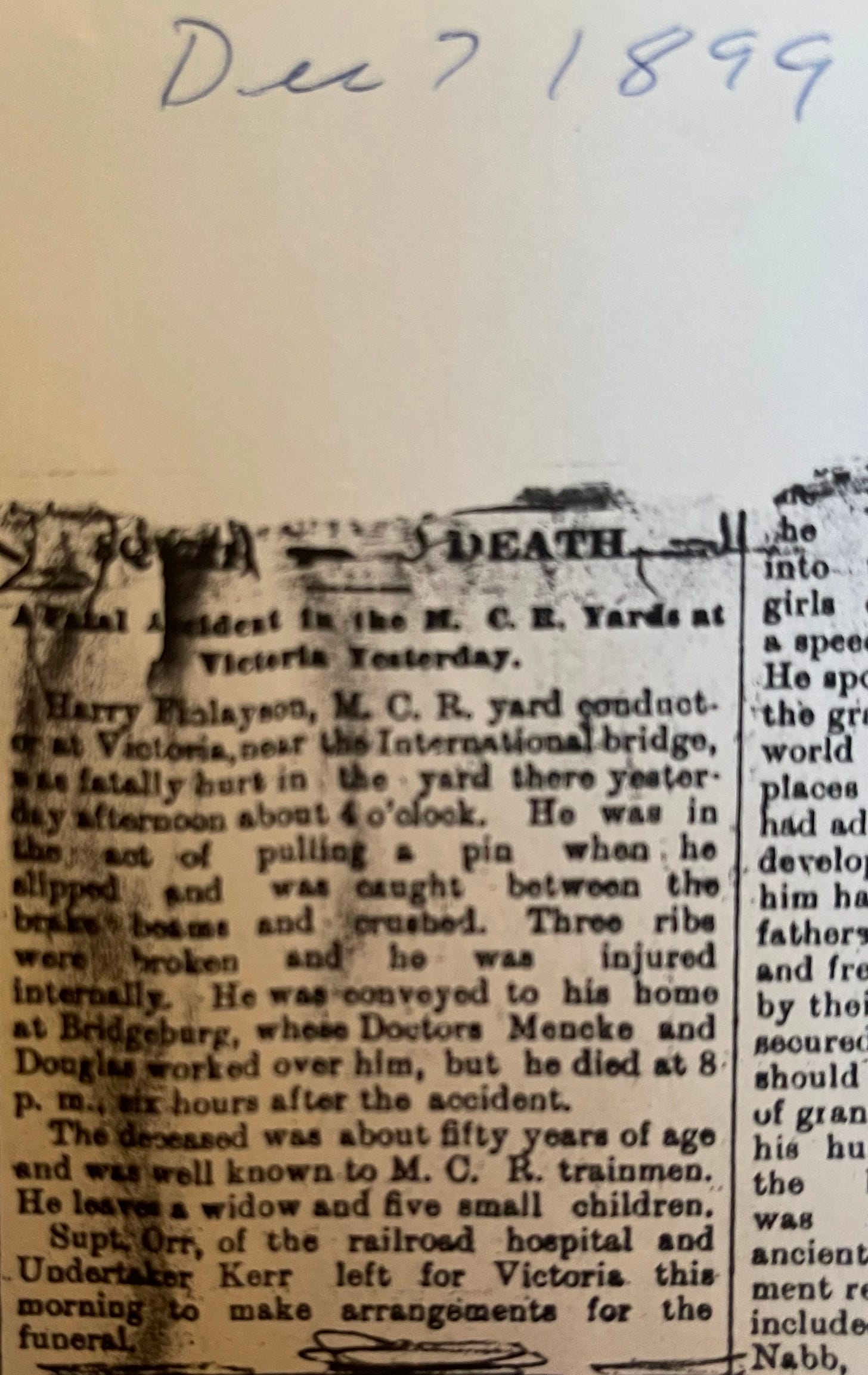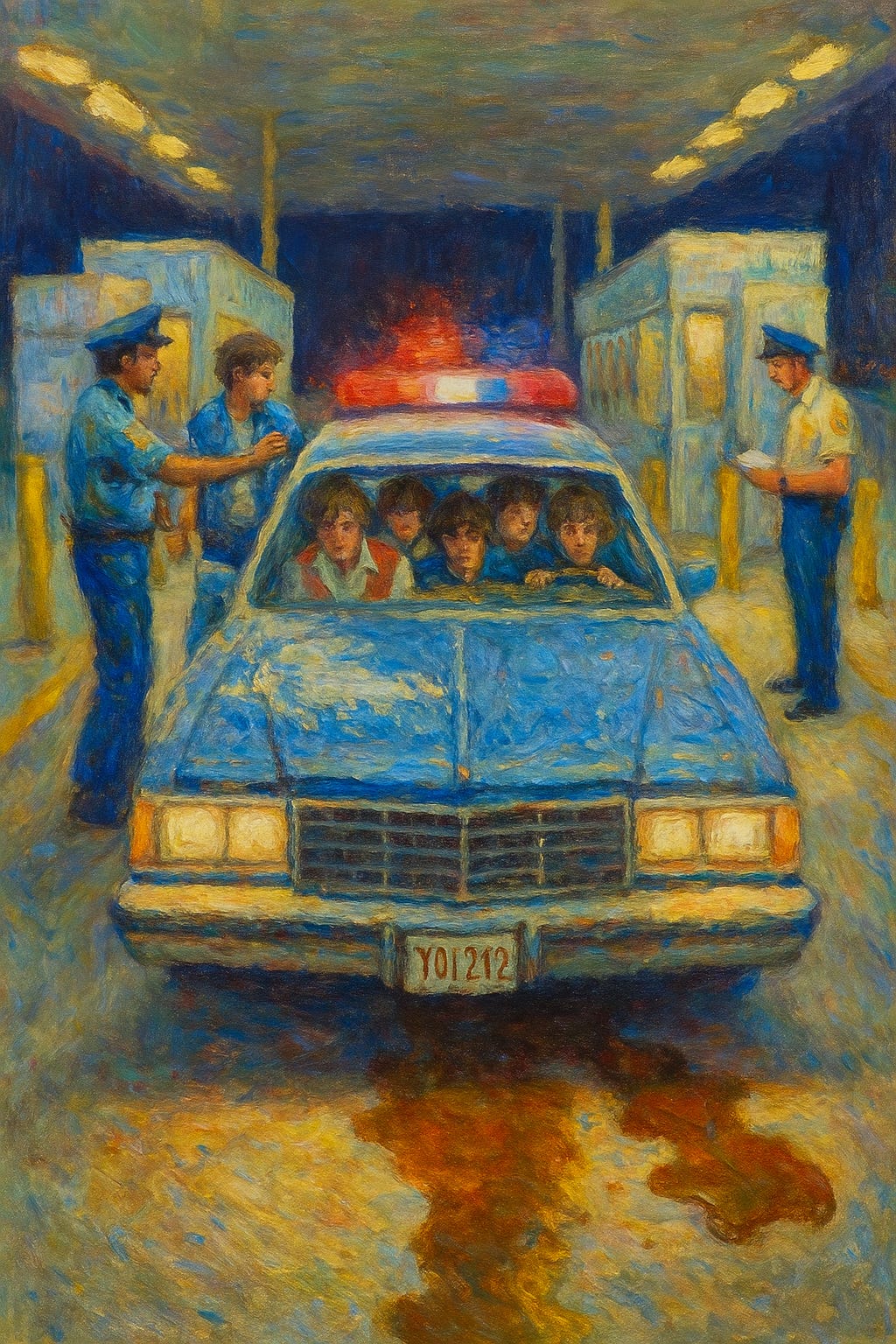The Cult of Hubrism: How Canada Lost Its Mind
A savage reflection on a country that once raised war heroes and now gags professors for standing with civilization.
If you give even half a damn about free speech, subscribe. It means I can continue doing this without needing to ask a gender-neutral AI for spare change. I’m a suspended university professor, not a pundit barking from the cheap seats. The link is below, click it before the lawyers take it away.
Please subscribe to get at least three uncensored, impolite, fire-in-the-belly essays per week. Open comments, $6/month. Less than \ USD $4. Everyone says, “That’s just a cup of coffee.”
Well, then order mine.
What gives a country its character? It’s not just its flag or anthem or that vacant nod to diversity we’re now trained to parrot on pain of excommunication. No, a national character emerges from a stew of values, aspirations, faith, and social memory, toughened by history and shaped by experience. And despite Justin Trudeau’s fashionably idiotic claim that Canada is the world’s first “post-national” state, it does have a character. Or at least, it did.
Trudeau’s remark was not the product of thought but a TikTok-grade echo, a rhetorical chew toy for a man who speaks like his mind is buffering. The sentence meant nothing, because he means nothing.
My own story is not exceptional, but it is Canadian. And it doesn’t fit the sanitised, self-flagellating narrative now peddled in classrooms and HR departments. It connects badly, like a mismatched rail gauge, to what we’re told Canada is becoming.
My maternal grandfather fought in World War I and was wounded at Passchendaele—a battle so brutal that men drowned in mud before they were shot. My paternal grandmother came from Kerrykeel, Ireland, fleeing the British. She arrived in Canada at twelve, her possessions, her, her entire life crammed into a single trunk, which now collects dust in the corner of my basement—a museum of grit.
My paternal grandfather was orphaned young after his father was crushed between two CN railcars in 1899. The CN reps showed up with condolences and a liability waiver. My great-grandmother signed it. Then she died of grief.
Grandpa bounced from relative to relative, dropped out in eighth grade, and worked at whatever he could find—stuffing horse collars, selling Massey Harris tractors. Eventually, he accepted the government's offer: homesteading in Saskatchewan, free land in Western Canada, provided he could farm it. He tried, failed (due to the land flooding), and moved to Calgary. Not defeated, just reloading.
At the CPR station, my great-uncle Jim approached him and offered him work on a farm near Ensign, Alberta.
That’s how things happened then: men with calloused hands made wordless contracts with a nod. The second attempt at farming took root. He met Georgina, apparently the best-looking of the Williams girls from Kerrykeel. They married. He bought land from her father. In 1930, my father, Henry—“Hank”—was born, just in time for the onset of the Great Depression.
Hank grew up on a hard farm in harder times, a dirt-on-your-boots, school-on-your-horseback kind of boy. But he had a brain for numbers and became a mathematician, eventually teaching at the University of Manitoba. He met my mother at a wedding in Regina, and soon we were a family in Fort Garry, a Winnipeg suburb.
The arc of this story is unremarkable only because it was once so common. This was Canada: modest, middle-class, anchored in work and restraint. Polite like the Brits, restless like the Irish, and drawn to the brash confidence of the Americans, just 60 miles south in North Dakota.
We road-tripped to the U.S. often. Once, my friends and I made the pilgrimage to Grand Forks, North Dakota, on a frigid, drunken lark. Only one of us was sober enough to drive, and it wasn’t me. I learned the hard way that if you’re going to vomit in a Dodge Coronet 440 in January, stick your head far enough out the window to avoid freezing a Technicolour stripe down the car door.
We crossed the border without any issues. Try that today and you’d make the front page: “Five Drunk Canadian Boys Attempt Cross-Border Insurrection.” No one talked about “emotional safety.” If you used the word, you’d get slugged—or worse, called a retard, a word now rightly retired but once flung with the care of a snowball.
Back then, we weren’t political. We were cold, competitive, and hockey-mad. We played at outdoor rinks with aching feet, tightened our skates, and didn’t expect our parents to show up and cheer. One of my defining memories is watching the Montreal Canadiens face off against the Soviet Red Army team on New Year’s Eve, 1975. A draw on the scoreboard, but Canada dominated in spirit. Vladimir Tretiak kept the Soviets in the game, and for years after, every kid playing ball hockey would shout “Tretiak!” after a glove save.
That was nationalism: orange armchairs, square TVs, and shouting at the screen.
Does any of that remain? Perhaps in places like Vulcan, Alberta, and in Chinese-run cafés built by immigrants who prioritised work over grievances. But mostly, it’s gone. What’s replaced it is shame. Self-hatred dressed as empathy.
According to a UBC study, we now mirror American culture almost perfectly—except we’re more docile. Our national character has been quietly traded in for hashtags and hesitation.
Yet public opinion is not quite what you’d expect in a country supposedly overrun by woke priests:
Canadians reject racial essentialism in schools (92% against)
Canadians oppose teaching that sex is a mere preference (85%)
80% oppose cancelling J.K. Rowling
Seventy-eight per cent say political correctness has gone too far. 70% reject the idea that Canada is inherently racist
2-to-1 margin against letting boys in dresses dominate women’s sports
Despite this, we’re ruled by institutions that behave as if those numbers are reversed. We self-censor. We tiptoe. We nod along with madness because to dissent is to risk cancellation. It’s not disagreement; it’s heresy.
The mobs don’t argue. They screech. They don’t win debates. They threaten livelihoods. They march through downtown Toronto waving genocidal slogans and get applauded by the same people who would faint if someone misgendered a houseplant.
Their avatars are white saviours in Teslas, their hands shaking from soy lattes, muttering about decolonisation while planning their next vacation to Tuscany.
We’ve replaced faith with a cult of confession. But it offers no forgiveness. It demands endless rituals of apology, submission, and social suicide. This is not progress. It is the auto-da-fé of our times.
I am, for instance, being dragged into a university tribunal for calling Hamas what they are: Nazis. For saying I support Israel. For refusing to genuflect. My union offered to help if I showed “remorse.” I declined. My grandfather broke sod with his hands on the Saskatchewan River. I will not beg.
My crime? Pointing out that a people who openly celebrated the Oct. 7th massacre—where hostages were raped, murdered, and paraded like trophies—may not be morally indistinguishable from your average PTA parent. For this, I am called a racist.
Meanwhile, my accuser—a professor who praises Putin, Erdogan, and Maduro, posts antisemitic bile daily, and celebrates every Jew-hating TikTok cretin who can spell “genocide” with finger paint—is lionized.
He circulates videos accusing the IDF of murdering their hostages. He posts cartoons showing Israel replaced by Palestine. His followers shout “from the river to the sea” and tell us it means freedom, not extermination.
And the university nods along.
Canada, where 15% of the population now admits to antisemitic attitudes, pretends not to notice. We’ve decided that mobs shouting for Jewish blood are just exercising civic virtue, while professors calling Hamas what it is are threats to safety.
Our new religion—call it Hubrism—is a hybrid of smug ignorance, self-flagellation, and ritual cowardice. Its prophets are Trudeau, Guilbeault, Suzuki, and their spiritual handmaidens in DEI offices across the nation. Their gospel teaches that we are monsters: racist, colonial, sexist, bigoted, polluting ogres in need of constant penance.
It offers no grace, no redemption, no hope. Just rules. And if you dare question the orthodoxy? Welcome to the inquisition. Bill C-63 will see to that. It will bring censorship online.
This is not post-nationalism. This is pre-suicide. You cannot build a country on a foundation of loathing and lies. You cannot teach children to hate their ancestors and expect them to honour their obligations.
We are a nation burning its own house down in the hope that the fire will keep us warm.
If you found value in this article and wish to support my ongoing work, especially during my 18-month suspension, please consider leaving a tip. Your support helps me continue producing uncensored content on critical issues. If you are inebriated and simply open to irrational spending, you may also participate.










Dear Professor Finlayson,
I would like to ask for permission to translate your article, “Today, in Canada, it is like Nazi Germany in the 1930s” into Polish and post it on a website www.listyznaszegosadu.pl which I run together with my husband. Fighting against antisemitism is a huge part of the content we publish. My email address is: koraszewska1@gmail.com
I tried to contact you more privately but failed to find a way to do so. I would be very grateful for the opportunity to show your article to our readers.
Małgorzata Koraszewska
Much was packed into this essay, lots to process, but appreciate the morality, decency, and lack of hypocrisy.